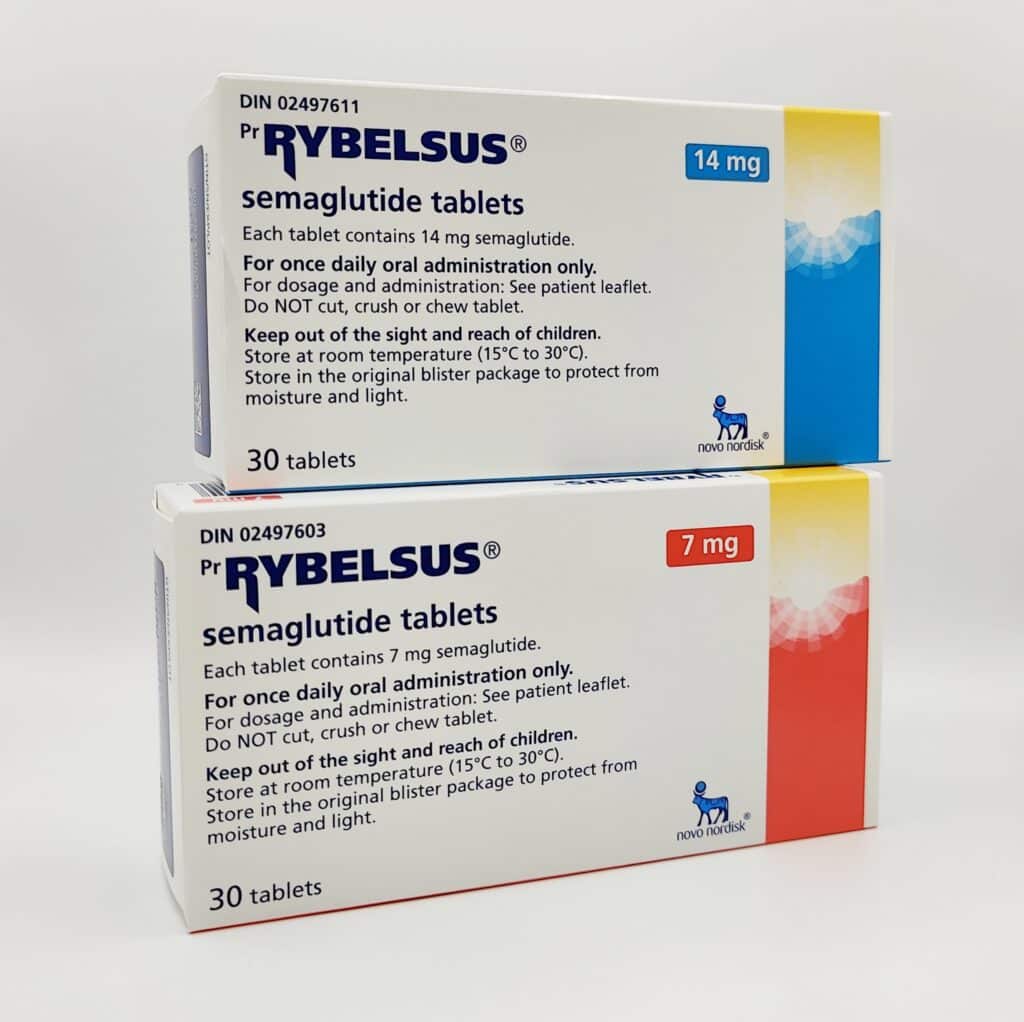Shedding Pounds with a Pill? Unveiling the Weight Loss Potential of Rybelsus
Shedding Pounds with a Pill? The Weight Loss Potential of Rybelsus
Weight management remains a significant challenge for many, prompting interest in various pharmaceutical solutions. Among these, Rybelsus, known for its active ingredient oral semaglutide, has gained attention. This article delves into the potential of Rybelsus for weight loss, examining its effectiveness, side effects, tolerability, and the Rybelsus cost implications.
Rybelsus for Weight Loss
Rybelsus, primarily approved for managing type 2 diabetes, contains semaglutide, a medication that influences insulin secretion and appetite regulation. This mechanism has sparked interest in its off-label use for weight loss. Clinical trials and user reports suggest that Rybelsus can aid in reducing body weight, primarily through appetite suppression.
Rybelsus (Semaglutide)
$295
One of the most pressing questions for those considering Rybelsus is its effectiveness in terms of actual weight loss. Clinical studies and user experiences suggest varied results. On average, individuals may experience a noticeable reduction in body weight within the first month. However, it’s important to note that individual results can vary based on several factors, including lifestyle, diet, and exercise.
Effectiveness and Tolerability: Rybelsus vs. Ozempic
When comparing Rybelsus with Ozempic, another semaglutide-based medication specifically approved for weight management, it’s essential to understand their differences. Both contain the same active ingredient, but Ozempic is administered through injections, while Rybelsus is an oral tablet. This difference in administration might influence their absorption and efficacy.
Studies suggest that while both medications are effective in weight management, Ozempic, due to its higher dosage and different administration route, might lead to more significant weight loss. However, the choice between the two often hinges on patient preference for oral medication versus injections and the consideration of side effects.
Side Effects of Rybelsus
As with any medication, Rybelsus comes with potential side effects. Common ones include nausea, stomach pain, diarrhea, decreased appetite, and vomiting. These side effects are generally mild to moderate and tend to diminish over time as the body adjusts to the medication. It’s crucial for individuals to consult with their healthcare providers to understand these side effects and how they might affect their daily life.
Rybelsus for Weight Loss and Non-Diabetics
Rybelsus is gaining popularity for off-label use in non-diabetic individuals seeking weight loss solutions. While primarily prescribed for type 2 diabetes, its appetite-suppressing properties make it a candidate for weight management. However, it’s crucial for non-diabetics to consult healthcare professionals before using Rybelsus, as it might not be suitable for everyone and could have varying effects.
Rybelsus Cost Considerations
The cost of Rybelsus is a significant factor for many. It varies based on location, insurance coverage, and available discounts or pharmacy programs. Typically, Rybelsus can be more expensive than traditional weight loss medications, but less so compared to Wegovy. Patients should explore insurance options, manufacturer coupons, and patient assistance programs to help mitigate these costs.
Conclusion
Rybelsus for weight loss presents a promising option for individuals looking for pharmaceutical assistance in their weight management journey. While it shows effectiveness in appetite suppression and weight reduction, it’s crucial to weigh its benefits against the potential side effects and cost considerations. Always consult with a healthcare professional to determine if Rybelsus is a suitable option for your health needs and goals.
References:
A Pharmacological and Clinical Overview of Oral Semaglutide for the Treatment of Type 2 Diabetes


